Billionaires buying property in Hawaii isn’t new. But a recent investigation revealed the scale of their landholdings has quietly ballooned into something much bigger—and more controversial. According to Forbes, just 37 ultra-wealthy individuals now own at least 218,000 acres across the islands. That’s 5.3% of Hawaii’s total land and over 10% of all privately owned acreage.
To put that into perspective, this group—representing just 0.003% of the population—owns more land than the entire island of Molokai.
And this may still be an undercount. Many billionaires hide ownership through layered LLCs and trusts, making it harder to trace the whole picture.
Who’s buying Hawaii’s land?
Three of the biggest names are already household-level familiar in Hawaii:
Mark Zuckerberg owns over 1,500 acres of land on Kauai, which is surrounded by historic sugarcane and beach access lands. He’s faced criticism for filing lawsuits to force the sale of kuleana parcels—small plots held by Native Hawaiian families—within his broader holdings.
Oprah Winfrey has bought over 1,000 acres on Maui, mostly in upcountry Kula on Haleakala’s slopes. She’s built multiple homes, maintains a private road once used by residents, and is reported to own more land in Hawaii than she does in California.
Larry Ellison made the largest single private land purchase in recent memory when he bought 98% of Lanai for a reported $300 million. That acquisition included two luxury resorts, a local newspaper, the water utility, and nearly all infrastructure for the island’s 3,000 residents.
Other billionaires with extensive holdings include Jeff Bezos, Pierre Omidyar, Michael Dell, and a handful of names that don’t often appear in tourism media but control thousands of acres through real estate trusts, conservation ventures, or development companies.
Not all celebrity landowners follow the same pattern: Bette Midler, born in Honolulu, has long owned over 1,400 acres on Kauai and recently partnered with a local nonprofit to develop an agricultural park for resident farmers.
Also worth noting: not all large landowners are billionaires or newcomers. Parker Ranch, one of the oldest cattle operations in the U.S., still holds around 130,000 acres on the Big Island. Now run by a charitable trust, its mission includes supporting health care, education, and community programs in Waimea. It remains a rare example of large-scale landholding with longstanding ties to Hawaii’s people and place.
And then there are families like the Robinsons, who’ve owned Niihau entirely for over 150 years and still control more than 55,000 acres between that island and neighboring parts of Kauai. While they don’t make tech headlines, their influence on land use and access remains deeply felt.
What’s happening to the land?
While some billionaires tout preservation or sustainability goals, critics say the growing concentration of ownership really affects public access and cultural life.
On Kauai, longtime residents say access to trails and beaches they once used has been restricted by locked gates, security patrols, and ambiguous signage. On Maui, farmland once used for taro or grazing now sits idle behind fences as speculative purchases or tax-advantaged “ag lands.” And on Lanai, there are renewed concerns about whether the island functions more like a company town than a community.
Several large landowners keep small numbers of livestock or minimal farming operations to meet Hawaii’s loose agricultural use exemptions, which sharply lower property taxes. That’s led to charges of loophole exploitation—using a few cows or papaya trees to reduce land tax bills by hundreds of thousands of dollars.
This isn’t new—but the scale is.
Some commenters argue that large landowners have always dominated Hawaii. And it’s true: Bishop Estate, Kamehameha Schools, the Department of Hawaiian Home Lands, and the federal and state governments control a vast portion of Hawaii’s acreage.
But what’s different now is the global financial footprint of these private buyers. This isn’t just about a few elite families anymore. The new land barons are multinational billionaires, private equity firms, and tech moguls with essentially unlimited buying power. In many cases, they aren’t living full-time in Hawaii, and their purchases are more about asset protection, legacy estates, or prepping for future social or environmental collapse.
What do residents think?
Reactions are deeply polarized. Some residents express disillusionment and resignation. One noted, “Hawaii has already become a playground for the rich—it’s been that way for decades.” Others say these purchases represent a final stage of colonialism, where even the illusion of shared land disappears.
Others take a more practical view: billionaires create jobs, stabilize struggling resorts, and—at least theoretically—preserve undeveloped land that might otherwise be converted to condos or strip malls.
But there’s growing anger around fairness. Hawaii has among the lowest property taxes in the U.S., particularly for agricultural parcels. Critics say this encourages large land purchases by the ultra-wealthy while placing heavier tax burdens on working families, renters, and small landowners. “We’re being taxed into the ground while they run cows for a discount,” one reader told us after a recent article.
Why Hawaii?
So what’s drawing the ultra-wealthy to the middle of the Pacific?
Low property taxes are only part of the story. Hawaii offers a level of privacy few places can match. Its isolation, stable U.S. legal system, and prestige as a luxury destination make it ideal for billionaires seeking long-term refuges, family retreats, or contingency plans. In some circles, Hawaii is even discussed as a “collapse-proof” location—far from unrest, close to self-sufficient agriculture, and buffered by geography.
And as climate change reshapes global migration and real estate, land in Hawaii may feel less like a lifestyle choice and more like a long-term hedge.
What happens next?
There are signs of growing opposition. Some residents and legislators have proposed raising taxes on vacant land, speculative real estate, or excessive acreage not used for community benefit.
Others want greater transparency in ownership, so buyers can’t obscure their holdings behind shell companies or mainland LLCs.
Still, major reform remains politically challenging. The real estate industry is powerful, and many of these buyers employ armies of lawyers, lobbyists, and land planners.
But the issue is no longer invisible. Every time a billionaire buys another ranch, estate, or shoreline, it’s sparking a louder question: how much land is too much? And who should get to decide?
It’s about more than land.
Hawaii’s story is deeply tied to place—who owns it, who stewards it, and who is excluded from it. That’s why this isn’t just about acreage. It’s about access, identity, and the future shape of the islands.
In one online discussion, a Hawaii resident said: “I own 860 square feet in Honolulu. That’s all I’ve got, and it’s enough for me. But don’t let them take what’s left.”
As billionaires keep buying, that sentiment is growing louder. So here’s the question: is there still a place for everyone else?
Get Breaking Hawaii Travel News
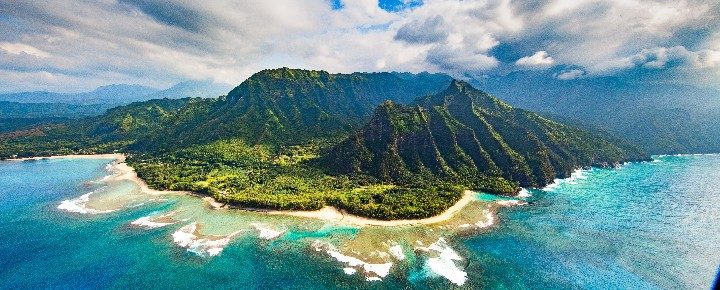

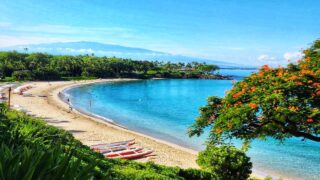
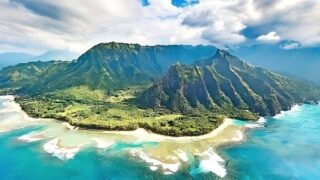
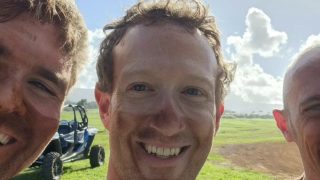
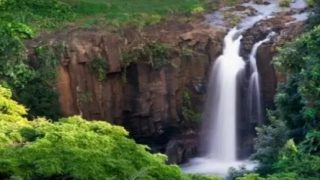
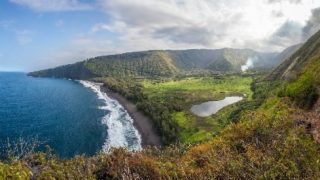
you can criticize these mega millionaires and billionaires all day – and rightly so – but it really comes down to who are the politicians that are allowing this in the first place? Stop voting for them! They don’t have your best interests at heart or they’re too incompetent to deal with the super slick lawyers all these wealthy people have. I don’t care if Oprah or Bette Midler or Jeff Zuckerberg, etc. say they’re doing something nice for the native Hawaiians – it’s crumbs compared to what they have bought out from under you. Did Oprah let lots of people stay at her compound after the Lahaina fire? We know others like Ellison, Zuckerberg, et al have been even less charitable. It’s simply not right and you guys need to demand real answers and change from your electeds to protect your land from these greedy people gobbling up what’s yours
I think that rich people should not be able to purchase large quantities of land in Hawaii. They usually only use it for vacationing and there should be a size limit of property bought and a requirement for the owners to physically live at the property on site for 75% of the year. This is not just happening in Hawaii. All over the world, the wealthy are just buying property for investments and greed. Enough is Enough!!!
I really wish there would be self-sufficient agriculture in Hawaii, but we are not even close ….I was hoping that Larry Ellison would help Lanai to become self-sufficient, but after reading that he was one of those deniers in the Trump election, I no longer buy Sansei salad from Lanai as I understand that’s his brand. Would love to meet Oprah Winfrey. At least she frequently donates food (and money) to the local community. I wonder if Larry Ellison ever did? Another celebrity not mentioned here is Mic Fleetwood. He has performed at free concerts in Maui more than once and is very committed in helping to bring Lahaina back. I was saddened when his restaurants burnt down. It was one of my favorite places for sunset and happy hour (from the roof).
The lawful Hawaiian Kingdom had a restriction on how much land non-Hawaiian persons, people, and/or entities could own. Is no consideration given to the laws and rules of the still existing Hawaiian Kingdom. These foreigners will buy up all of Hawaii until there is nothing left for Hawaiians. Why dont you buy up the land where you came from and leave ours alone. All your money, and security wont help when the lawful Hawaiian Kingdom comes to enforce the law. Your fences and signs will come down permanently. Your money will not help and has no value in the Kingdom. You will be evicted. Can any one of you rich produce a chain of title back to the first recorded owner of the land you claim you own in Hawaii. If not, you dont own jack. Who are you, because you have money, to deprive a nation from the land their roots are formed in. You have no Hawaiian blood.
Agree.
Reprehensible human being in my view and at least I have the satisfaction that I do not use any of his products or contribute to his wealth which he uses to try and buy the world.
Zuckerberg expects you to live in virtual-reality “Hawaii” in the Metaverse while he is building bunkers and walls to keep you out.
You will own nothing and be happy
There are many ways of looking @ equity & the fair playing field for the Hawaiians. How can there be trust in Hawaii’s government to honestly fight for the rights of the indigenous Hawaiians, since colonists have monopolized land grabbing. Money talks & Political B_ walks,
The Root of All Evil!
Simple answer: there’s a place for the common folk if we just take it back. As a land owner on O’ahu, I see this all the time. The few have everything and leave the rest to fight over the scraps. However, this is not a far cry to how things were before white westerners came here. The royal minority held the best la ds and left the rest for everyone else to scrape a living off of. Then the whites came. Just trading one landlord for another.
The local government allows this so vote those crooked politicians out. I don’t even go to Kauai anymore because of what it’s turned into. Suckerberg and the hotel conglomerates have changed the landscape to the point it’s unrecognizable. It sucks.
Large landowners also influence legislation which impact cost of living in Hawaii including zoning laws, water rights, tenant rights, and property taxes to name some major issues. Research your legislators and check to see who is part of a hui involved with large land holdings.
Frank Vandersloot is one you don’t hear much about, his large land purchase on Kauai has been relatively quiet.
I used to think hawaii as a place of paradise a place to run to and relax vacation style,now its all propaganda prices are high to just have a little fun.There are fewer Polynesian people around to interact with.its all millionaires and celebrities taking over.
Hawaii’s ongoing ban on gambling is hard to defend when locals send billions to Vegas each year-money that could fund jobs, schools, healthcare, & Native Hawaiian priorities. Tourism is risky & can’t be controlled, but a regulated gaming industry could be tailored for local benefit. Native American tribes proved that self-run casinos can lift communities out of poverty, create jobs, & support culture. Hawaii’s refusal to even consider this keeps it dependent on outsiders while pretending gambling’s taboo. If we truly want to keep our wealth & people at home, it’s time to face the contradiction & explore gaming as a tool for economic self-determination & community resilience.
No more talking out of one side of your mouth then getting on a plane to 9th island to let it all out leaving with Island money!
While there are good people and bad people, the same holds true for billionaires. On one hand, you have the repulsive and malignant Mark Zuckerberg, who has manipulated the law to steal land out from underneath Hawaiian families. On the other hand, you have Mark Benioff, who recently donated millions to expand Hilo Hospital. He then purchased a 158-acre swath of land up in Waimea, turned around, and gifted it to the Ouli project to construct single-family and low-rise multi-family homes, parks, and community spaces.
This isn’t true – he donated land for affordable housing. It was not “regifted”. Ouli Farms is a different development that he is not involved with in any way.
Glad to hear about Mark Benioff.
What’s the problem with just telling the buyers “No, the land is not up for sale!”. They can say we want to buy, but Hawaii can say we don’t want to sell. Let’s keep it simple. Or limit the acreage for purchase. 10 acres max!!
Don’t like it? Vote for politicians that won’t allow it.
Be careful what you wish for. If the state raises taxes on the billionaires for their “agricultural” land then these same billionaires may just decide to develop the land for revenue generation with homes and malls, and not in a way that has much benefit for locals.
It’s unfortunate that most of these billionaires (other than a few honorable exceptions) don’t want to accept the agricultural aspect of the islands because investing in agriculture doesn’t bring the same ROI like commercial real estate does. Ellison tried to create something self-sustaining on Lanai but it didn’t quite turn out as expected.
On the other hand, these people have so much money that I hope that eventually they’ll find it in their hearts to do some good regardless of the profit. There are many things they could do, from agriculture to renewables. Why not lower the cost of electricity and dependence on oil that has to be shipped to the islands? Why not produce more food?
I don’t think these are unrealistic goals but we need good, capable and persuasive elected representatives and savvy business people to lobby them towards such goals. It requires time and effort but could bring much prosperity in the future.
Maybe those billionaire people can help spruce up hawaii like the fires not to long ago.
Allowing billionaires to build homes and land guarantees the State of Hawaii will receive it’s tax revenue regardless how much they feel they want to raise it in the future. Hollywood has always protrayed stars as owning x bedroom mansion, x amount of pools, and the acreage etc. Its a status symbol of ones wealth not function. Too many in Hollywood. Why not Hawaii. Ya really don’t see many stars buying many homes in Idaho or Washington or Oregon. Rich and wealth people don’t like when the common folk reply So What. What is important is location, location, and location. Media attention and bragging rights. Hey I own a mansion on Hawaii what do you got.
Article on Jeff Stone and his development on the N. Shore of Kauai.
And an article on Starwood who are being sued by residents—it goes to trial in June over the Anthrax Issue on the Woods Course.
Every time I read an article such as this or others regarding how developers are given the green light to build more condos or resorts, I think of what John Oliver has said. “Hawaii is run for the benefit of everyone except the Hawaiians.”
Well, I have a lot of plants on my land, so I guess I should get taxed at the AG rate, right?
I watch all these billionaires buying beachfront island land… and wonder what happened to all their proclamations about how we have to sacrifice because of climate change and sea levels rising.
Hypocrites.
National parks keeping locals from fishing and sacred lands,pohue Bay Hawaii island
I would imagine Parker Ranch is a big land owner still.
Hi Rich.
Thanks. Added.
Aloha.
The Parker Ranch is no longer in any individual’s hands. After Richard Smart, the last descendant of founder John Palmer Parker, died in 1992, the holdings were given to run by a trust.
You forgot to mention the Robinson family. Besides Ni’ihau, they own a substantial chunk on Kauai as well… their main purpose seems to be to preserve Hawaii
Hi Chris.
Thanks.
Aloha.
I’ve posted this before. It’s my opinion that Hawaii is being systematically turned into the statewide equivalent of a “Doomsday Bunker” by the 1% class. They encourage the outmigration of residents to lower population, through high costs, high taxes, and restrictive laws and ordnances making it difficult for average people to survive in the state. They restrict access for visitors through high prices to come here.
They purchase large tracts of very finite land resources and remove formerly free access, control important parts of the state’s economy, buy our politicians, to essentially create a virtually inaccessible “safehaven” for themselves and their cronies in the middle of the Pacific confident in the knowledge that the U.S. Military will defend the islands against external threats.
May sound like a Tinfoil Helmet Conspiracy theory, but look at what they do, not what they say.
Best Regards
I have to say I agree with you, Jay.
It’s hard to think that the ‘doomsday bunker’ theory is feasible when a belligerent China is much closer to our islands than our mainland. Considering the large military presence and a fairly large population on the islands, so called 1%ers might want to reconsider, if that’s their survival plan. Let’s hope it never comes down to that scenario.
Exactly. Presence of certain facilities of huge strategic importance makes Hawai’i one of the prime targets in the event of a nuclear or even non-nuclear attack. Nobody likes to think about it, but it’s an unfortunate fact.
At least Bette she seems to be doing something productive with her land, unlike the others who just want their private utopias. Small steps, but they matter.
I grew up on Crozier Loop in Waialua on Oahu (born 1954). We lived right on the beach. Mom and Dad ensured we were always respectful of the beach, ocean….everywhere. When people from the “mainland” began buying up properties around us and big developments were going in, the change was frightening. It was horrific. I haven’t been there in over 20 years. Last time I was there, I cried.
I remember when the road to Maha’ulepu was still driveable, there was no gate, and the beach was wide open. Now it feels like you need a code, a pass, and a prayer to access anything that hasn’t been sold off or shut down. That’s the part that hurts the most.
I live on the Big Island and I can tell you firsthand—things have changed. Trails I used to walk with my grandparents are now fenced off. The billionaires don’t just own land. They’re reshaping what it even means to live here.
I knew about the visible ones, Zuck and Oprah, sure, but I had no idea how much land was concentrated in so few hands. The statistic about so few people owning more than 10% of private land blows my mind.
I get that people are upset, but I also wonder what the alternative is. If someone like Ellison hadn’t bought Lanai, would it have just ended up being turned into another Waikiki or what? Not defending him, just saying it’s not always black and white.
True, it isn’t always black and white. But, what he has with Lanai is a rich man’s resort(s), a Private enclave where it can cost $1,000 for a round of golf. Is that ‘preservation’ or ‘exclusitivity’? The same with Oprah and the rest of the mega-rich herd. On Lanai, he virtually owns the people as well as the land and its infrastructure. His own private fiefdom. Hopefully he is a benevolent ruler.
Honestly, this doesn’t surprise me at all. Hawaii’s always been seen as paradise for sale—it’s just that now the buyers are billionaires instead of sugar barons. The more things change, the more they stay the same.
I grew up in Hawaii and it’s gut-wrenching to see more and more land go behind locked gates. When I was a kid, we’d fish the same shoreline that’s now patrolled by private security. The spiritual connection to the land isn’t something you can buy, no matter how much money you have. That’s the part being lost.
Totally agree! It’s even lost on visitors, who come on island. Social media has drawn more than just mega rich people, and when they are on island there is a lack awareness of the environment and definitely do not try to connect with the land. People are drawn to the islands, but when they arrive forget to fully embrace the culture. Mega rich have increased value of homes which only works if you plan to sell. All natives will end up pushed out at some point because they can’t afford to live here or become a modern day slave to mega rich just to survive if something isn’t done to stop this.